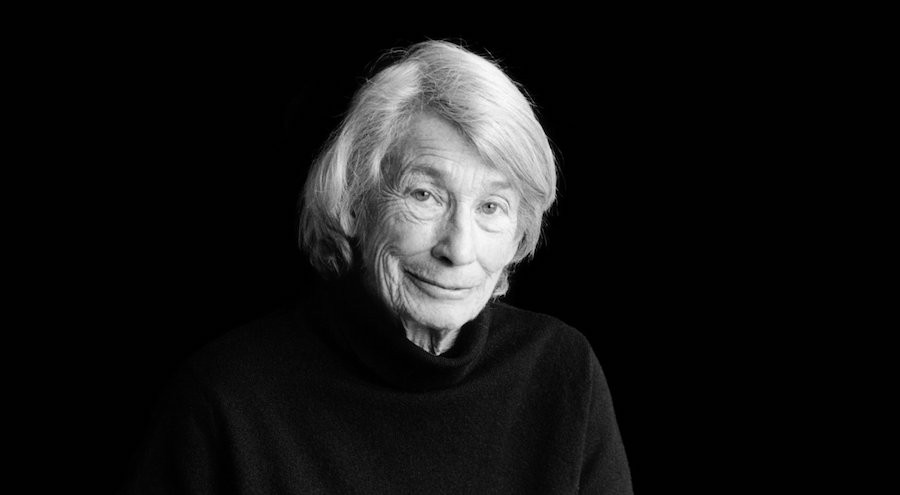
Friday
Mary Oliver, who died yesterday, may have been America’s favorite poet. I taught her Pulitzer Prize-winning American Primitive for over 20 years in a nature-focused Introduction to Literature class and so have seen up close her impact on readers. When death has entered my own life, I have often turned to Oliver’s poetry.
For instance, I revisited “University Hospital, Boston” when my best friend Rachel Kranz lay dying in a Bronx hospital. I read “In Blackwater Woods” at the memorial service of my beloved colleague Kate Chandler, who loved Oliver’s poetry. And the night after my oldest son Justin drowned, I hung on for dear life to two lines from Oliver’s “Lost Children,” although I didn’t know at the time where the lines came from.
I therefore devote today’s essay to some of Oliver’s views of death, especially as expressed in American Primitive, the poems I know the best. In “In the Pinewoods, Crows and Owl,” death is a fearsome force, lurking in the darkness while we, like the crows, obsess over it endlessly. Addressing the owl/death as “the bone-crushing prince of dark days,” she writes, “You/ are the key to everything while they fly/morning after morning against the shut doors.” Then she adds, “You/ will have a slow life, and eat them, one by one.”
In “University Hospital” she describes loss as “a place of parched and broken trees,” and in “Blossom” she writes that “time/ chops at us all like an iron/hoe” and that “death/is a state of paralysis.”
Yet “Blossom” also points to something beyond individual death—“we are more than blood,” she writes–and in “The Fish” she follows this up by looking at the bigger picture. After describing the painful death of a fish, which she catches and eats, she describes the cycle of life:
Now the sea
is in me: I am the fish, the fish
glitters in me; we are
risen, tangled together, certain to fall
back to the sea. Out of pain,
and pain, and more pain
we feed this feverish plot, we are nourished
by the mystery.
At this point, life and death are less an individual tragedy and more a grand mystery. This growing realization helps account for her equanimity at the end of “In Blackwater Woods,” where the fires of life and “the black river of loss” roll back and forth in a drama “whose meaning/none of us will ever know”:
Every year
everything
I have ever learned
in my lifetime
leads back to this: the fires
and the black river of loss
whose other side
is salvation,
whose meaning
none of us will ever know.
To live in this world
you must be able to do three things:
to love what is mortal;
to hold it
against your bones knowing
your own life depends on it:
and, when the times comes to let it go,
to let it go.
I do not know how Oliver responded to her death when it finally came to her—lymphoma carried her off at 83—but her acknowledging that she would one day die caused her to live life as fully as she could. In “When Death Comes,” she is resolved to follow the advice of her fellow Massachusetts author Henry David Thoreau, who in Walden writes,
I went to the woods because I wished to live deliberately, to front only the essential facts of life, and see if I could not learn what it had to teach, and not, when I came to die, discover that I had not lived.
Or as Oliver puts it, “When it’s over, I want to say all my life/ I was a bride married to amazement”:
When Death Comes
When death comes
like the hungry bear in autumn;
when death comes and takes all the bright coins from his purse
to buy me, and snaps the purse shut;
when death comes
like the measle-pox
when death comes
like an iceberg between the shoulder blades,
I want to step through the door full of curiosity,
wondering:
What is it going to be like, that cottage of darkness?
And therefore I look upon everything
as a brotherhood and a sisterhood,
and I look upon time as no more than an idea,
and I consider eternity as another possibility,
and I think of each life as a flower, as common
as a field daisy, and as singular,
and each name a comfortable music in the mouth,
tending, as all music does, toward silence
and each body a lion of courage, and something
precious to the earth.
When it’s over, I want to say all my life
I was a bride married to amazement.
I was the bridegroom, taking the world into my arms.
When it’s over, I don’t want to wonder
if I have made of my life something particular, and real.
I don’t want to find myself sighing and frightened,
or full of argument.
I don’t want to end up simply having visited this world
I pray that Oliver stepped through that door full of curiosity. I can’t imagine her not having done so.

